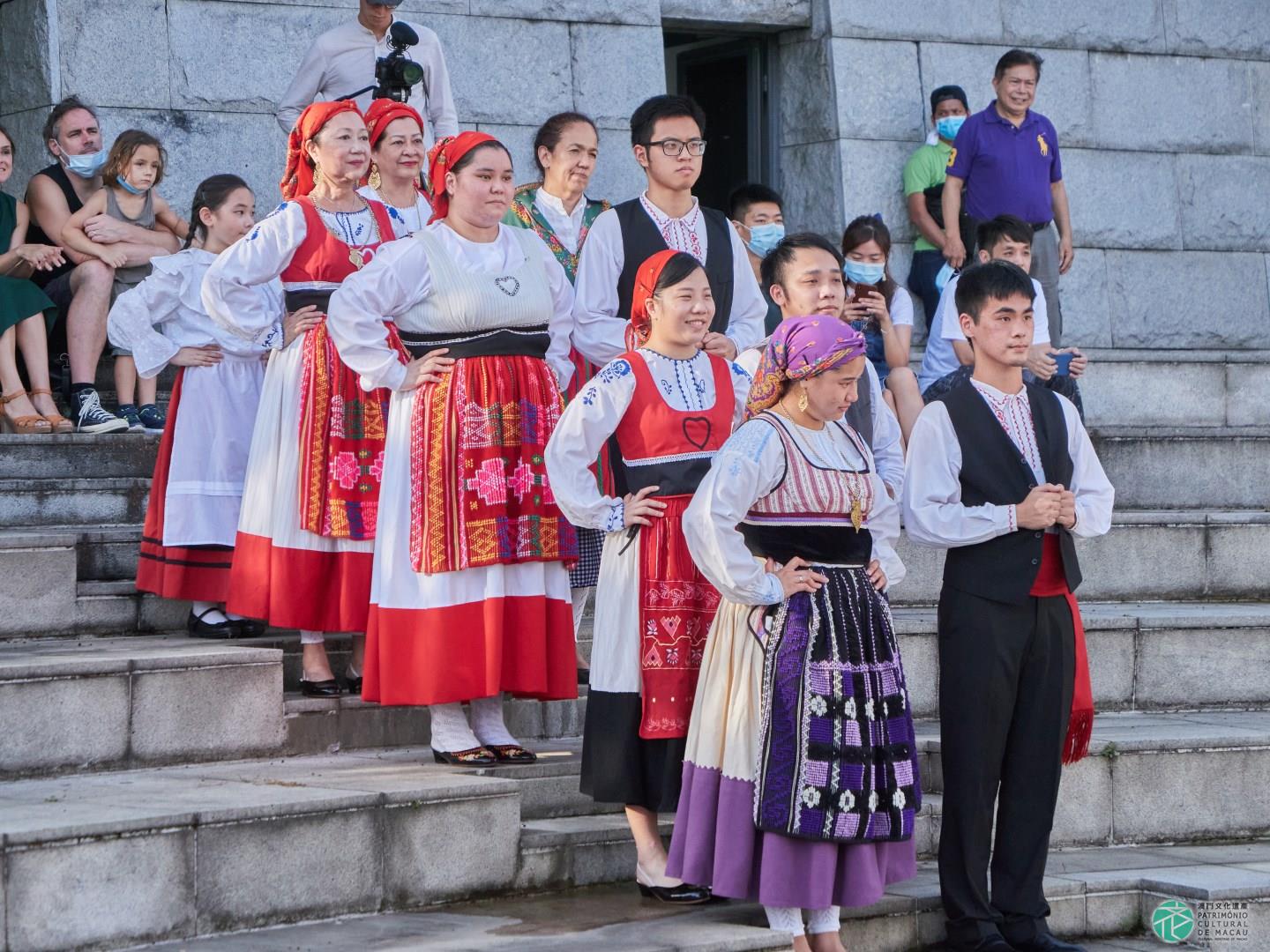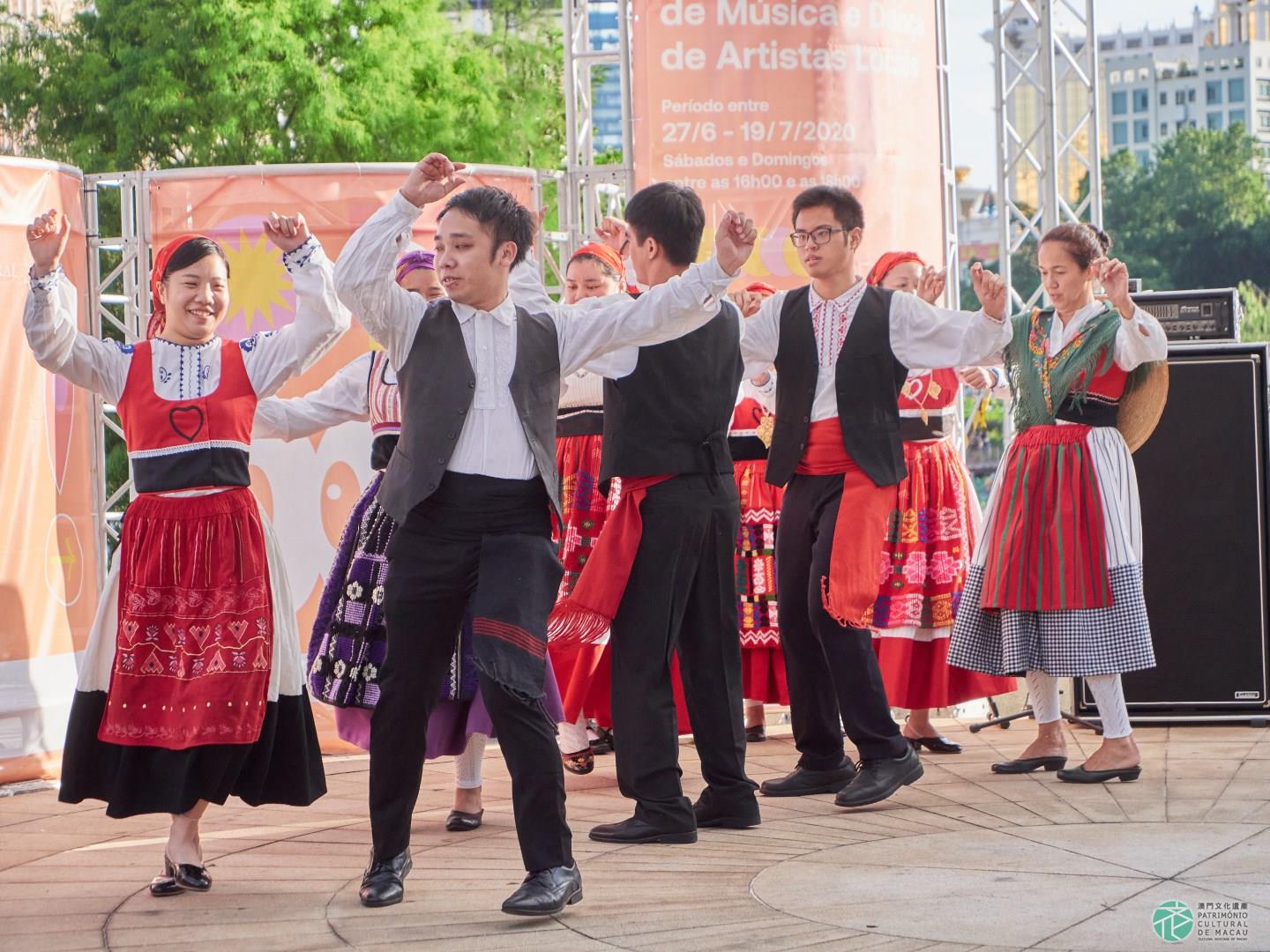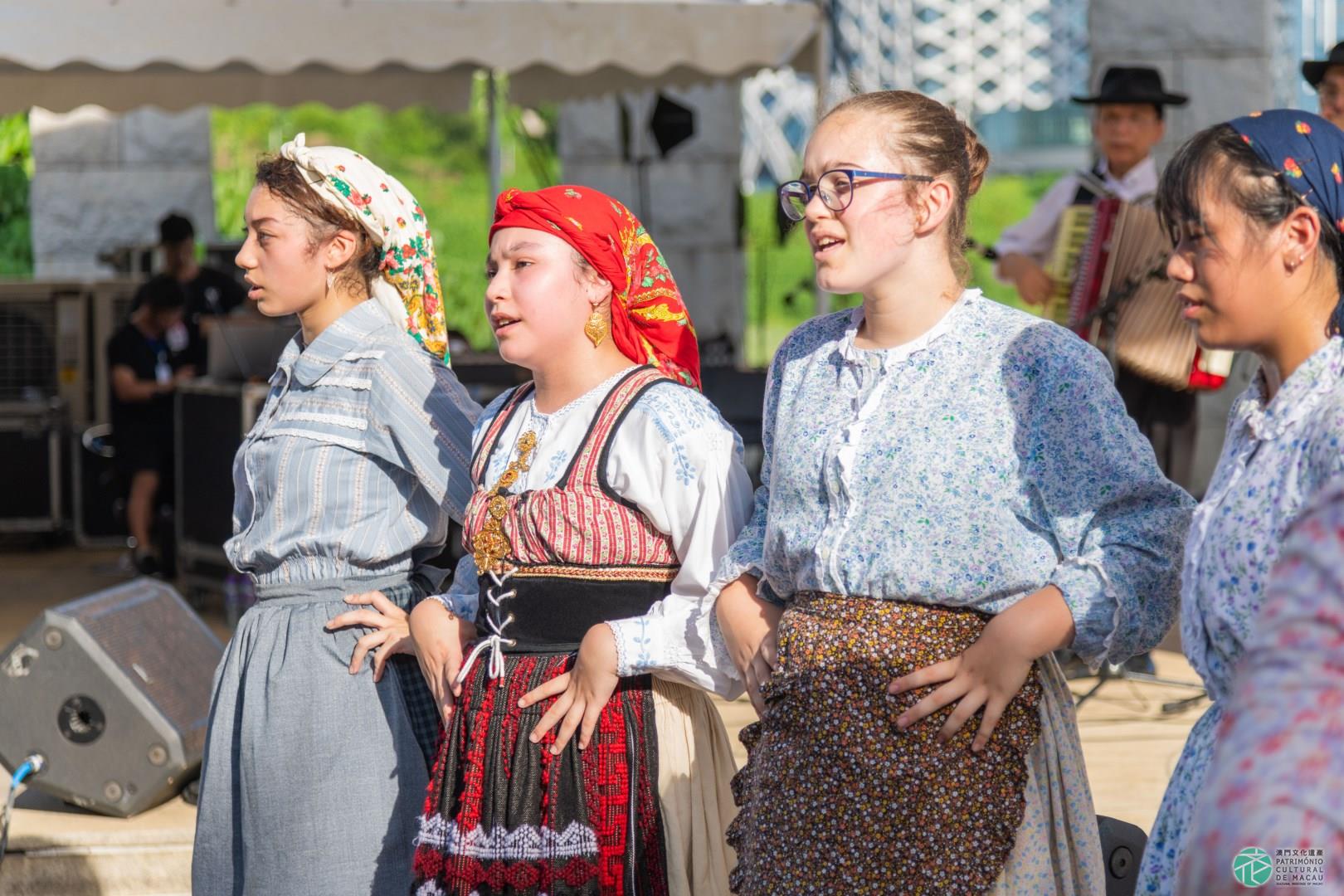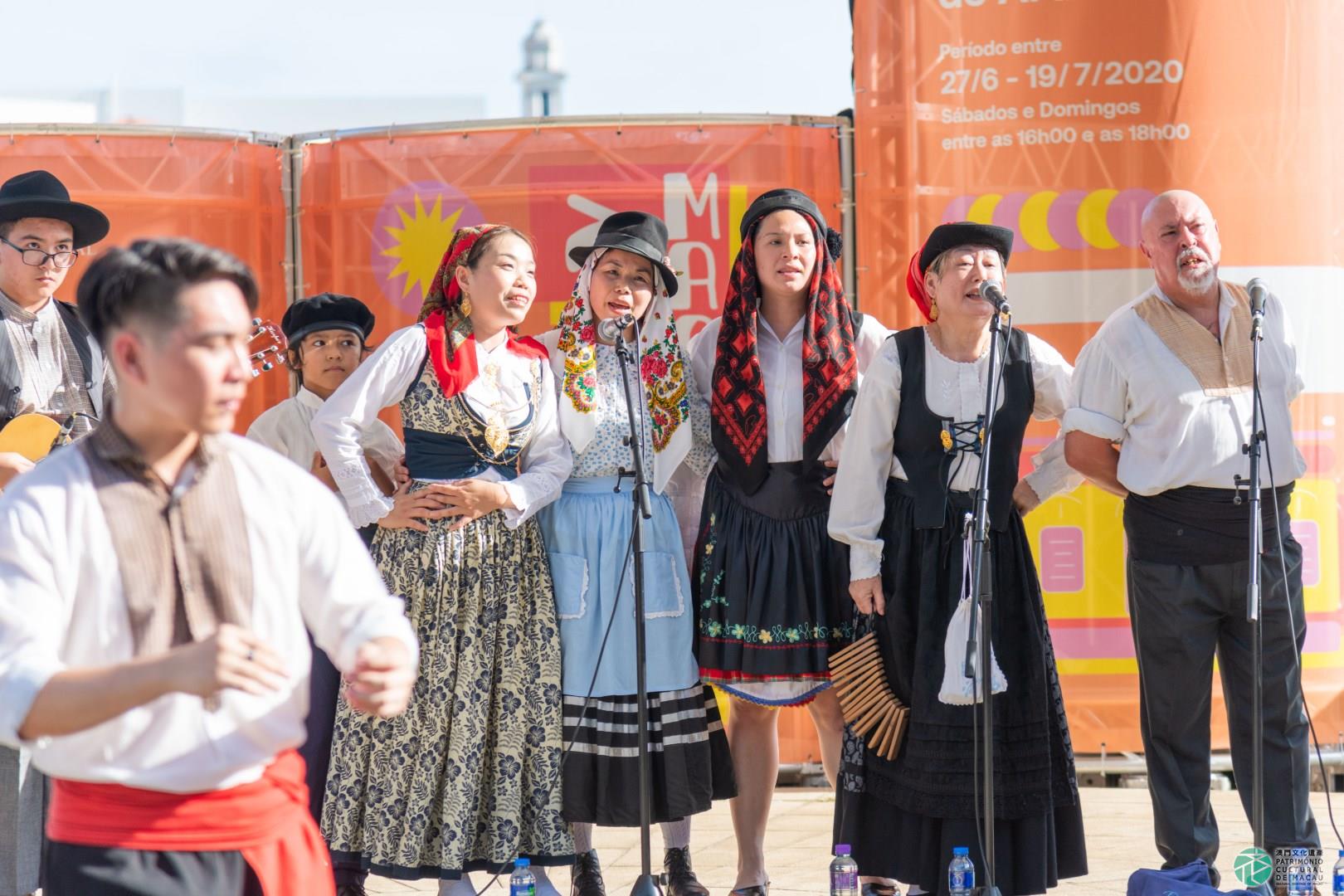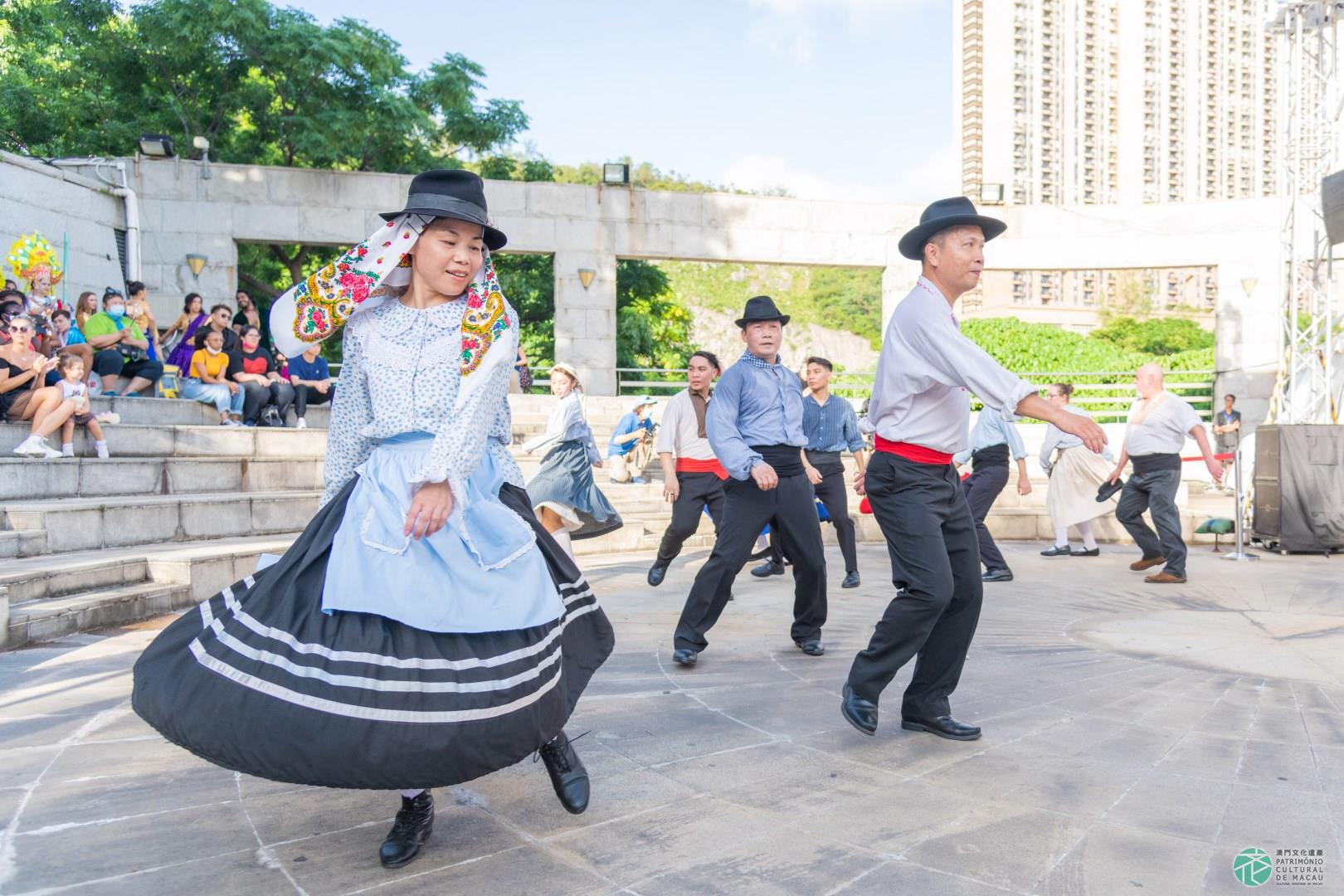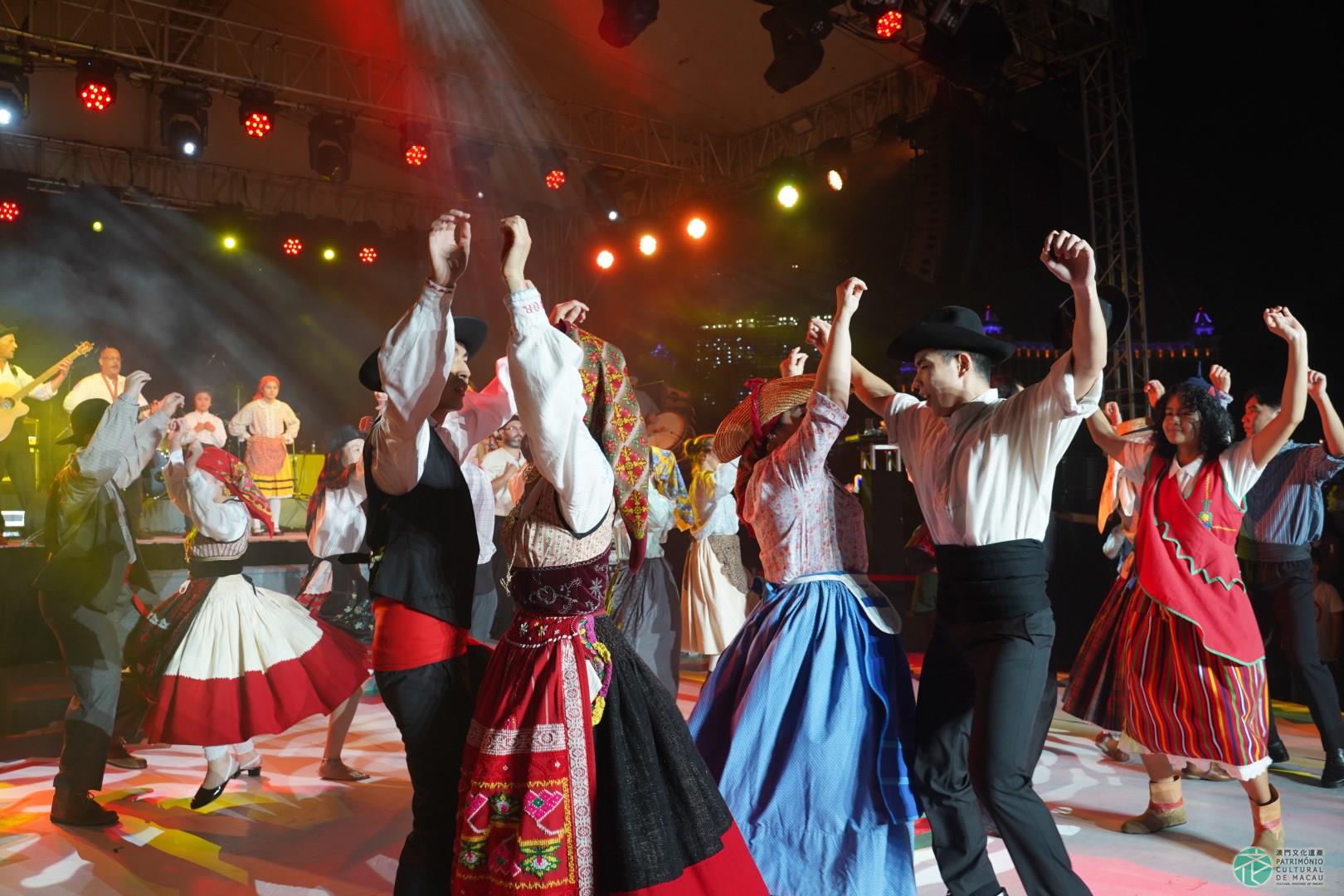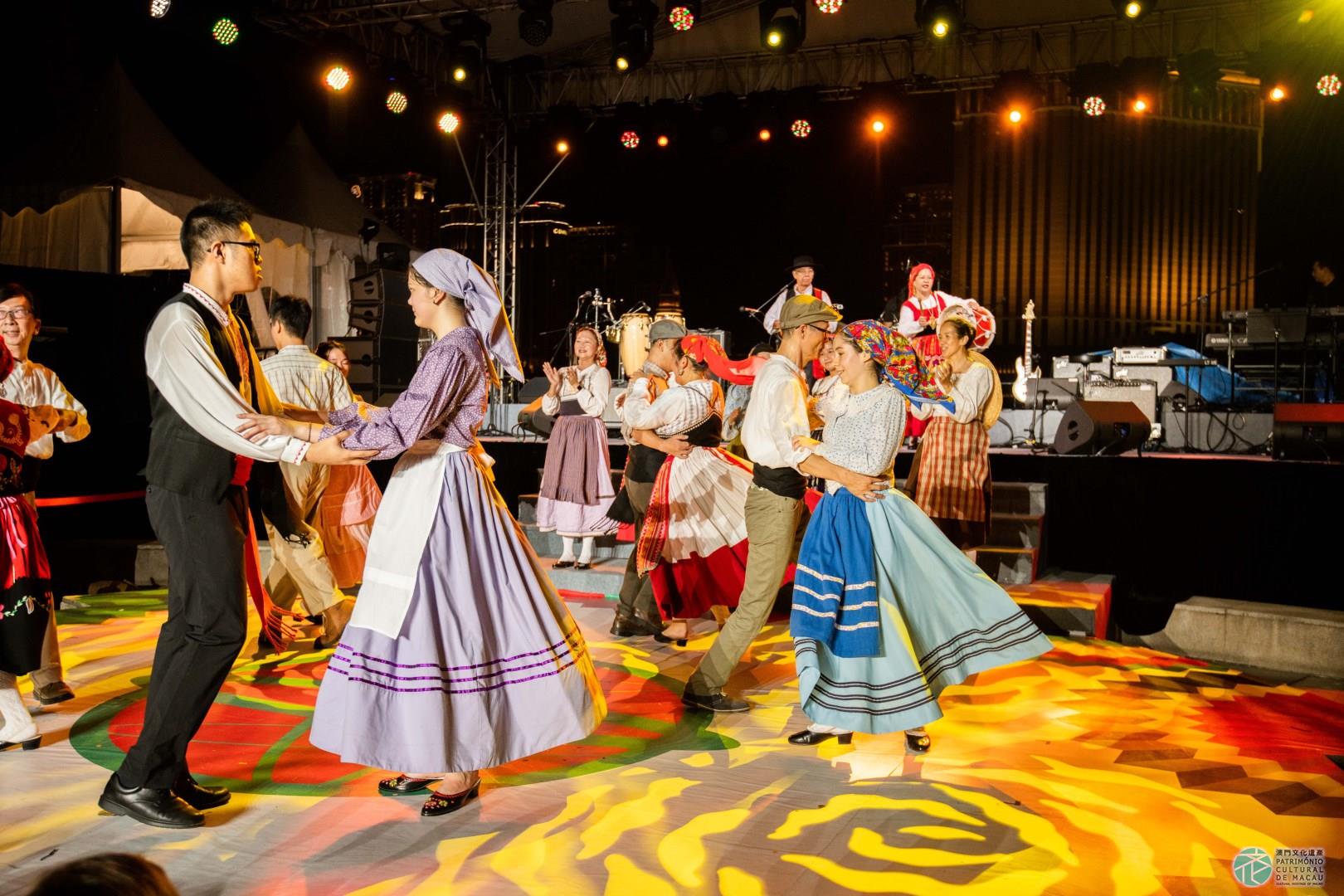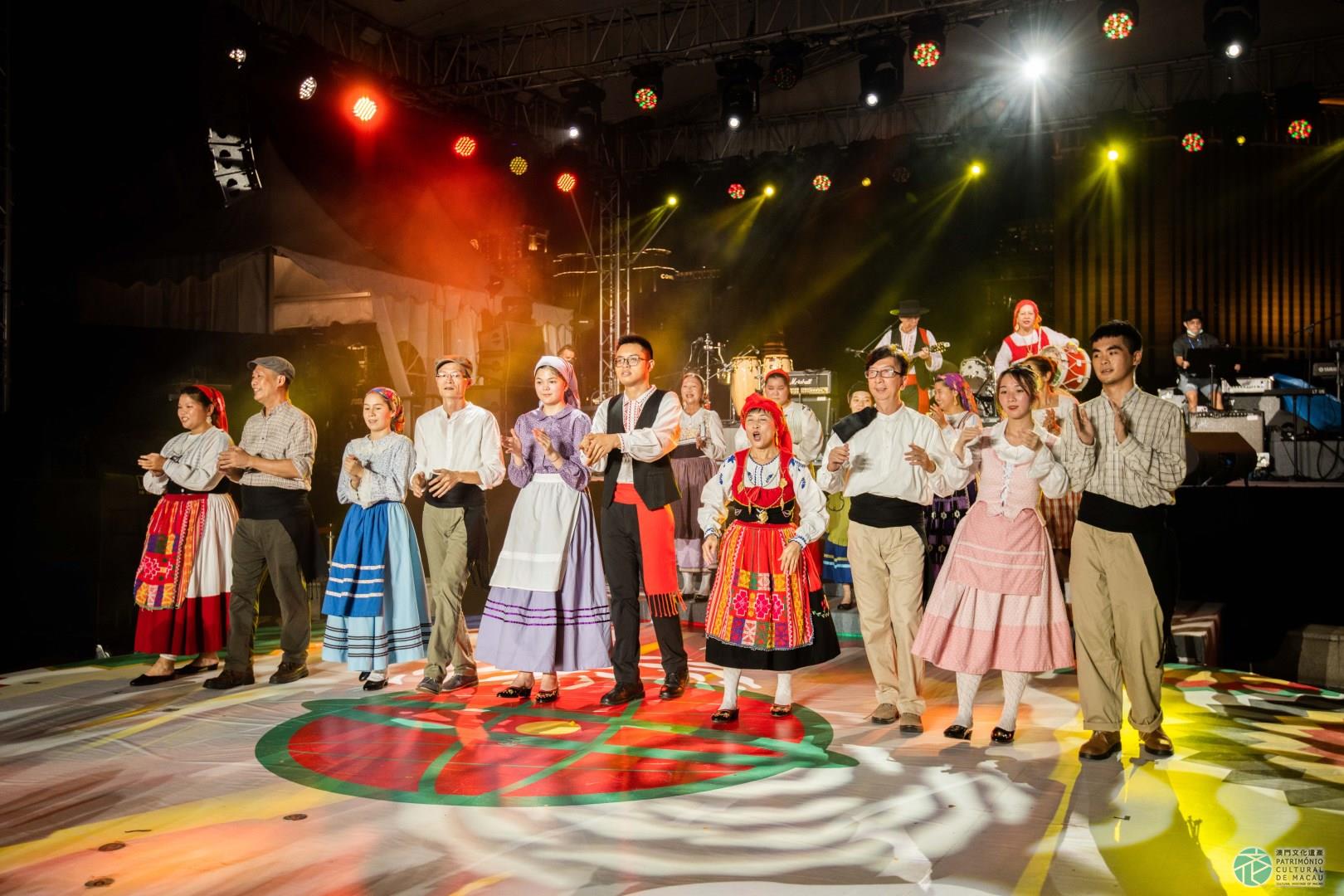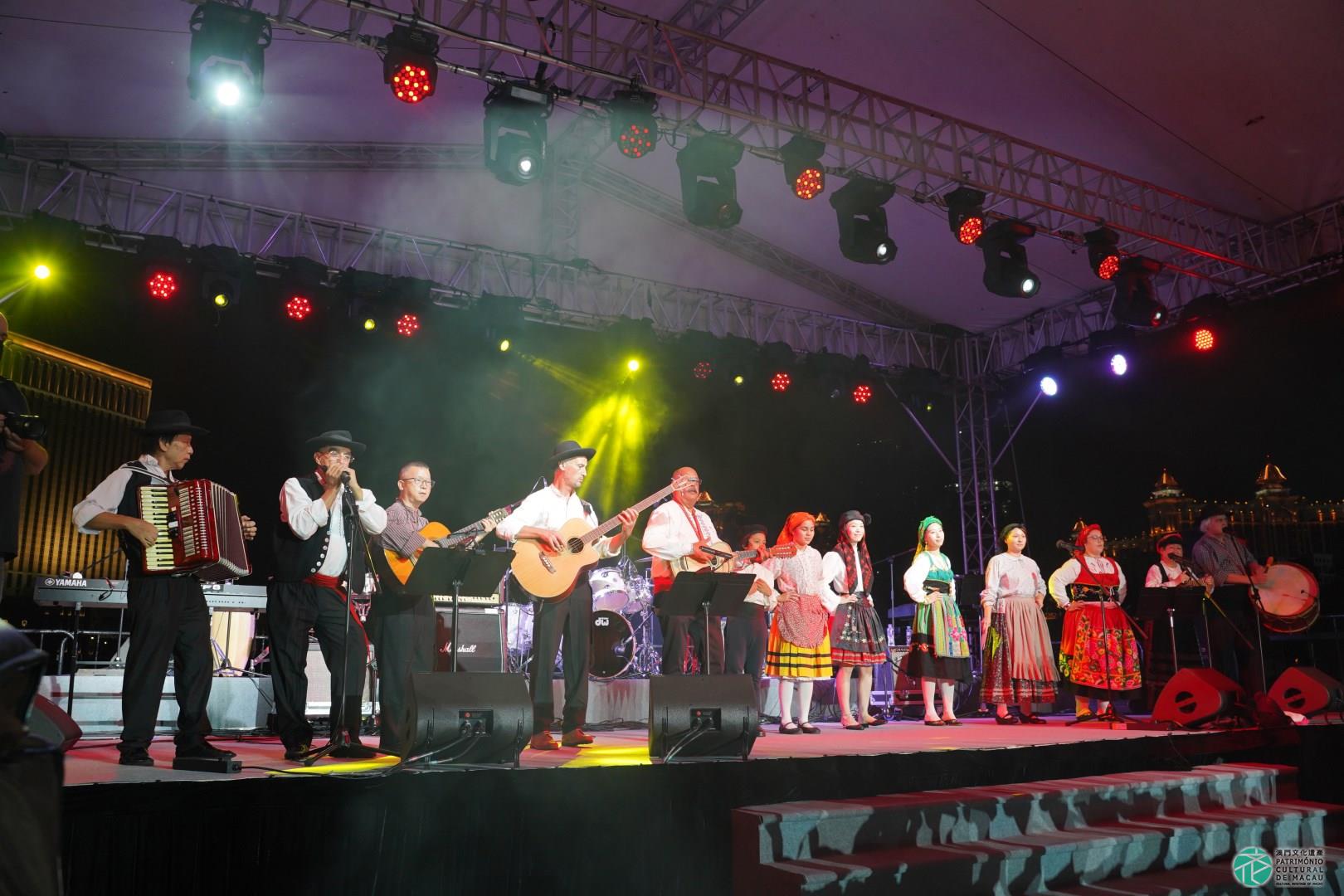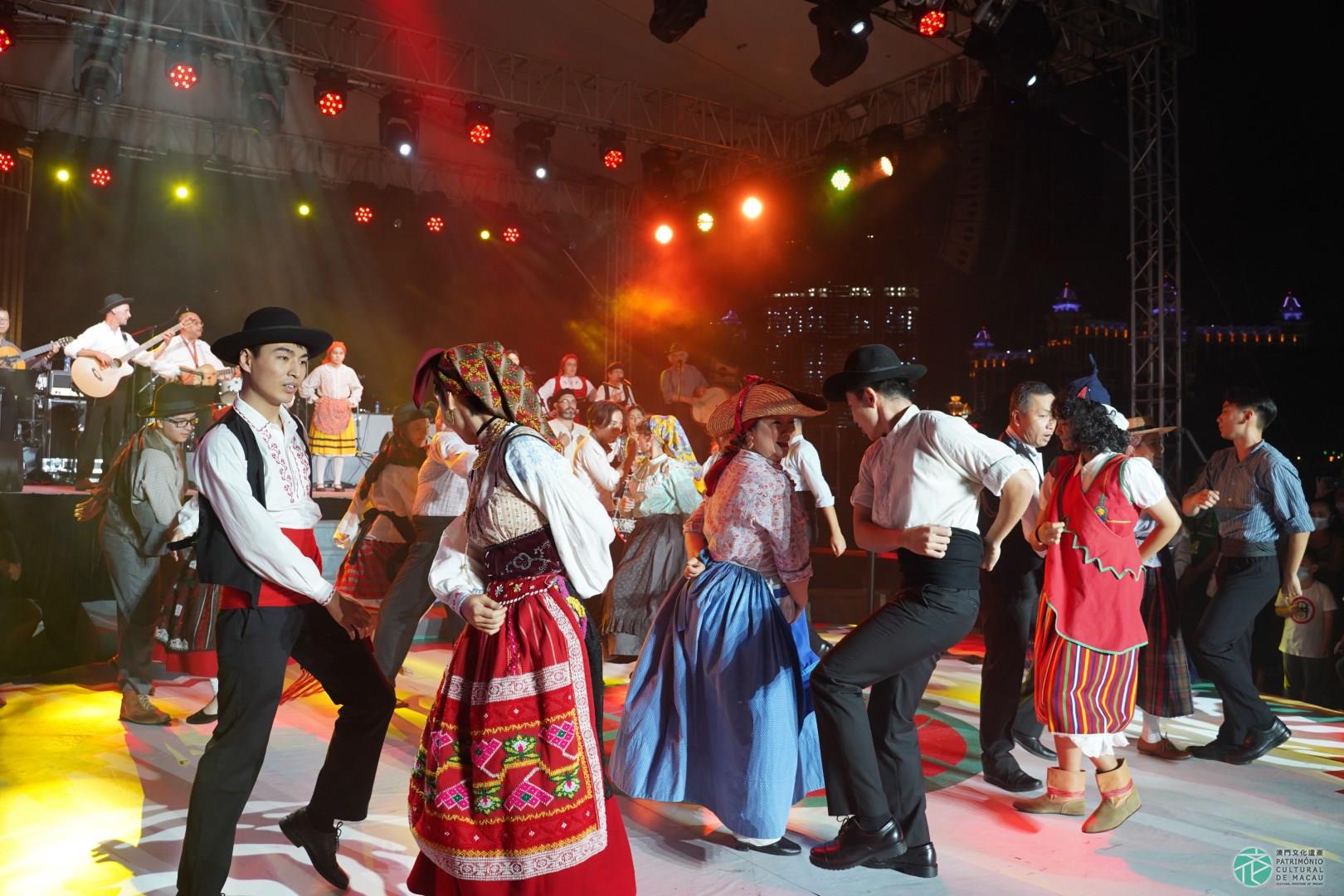Introduction:
The Portuguese folk dance is a group dance that stemmed from the rural areas of Portugal. This is a performing art that combines traditional folk dance, folk songs and respective instruments. Brought to Macao by the Portuguese, this type of dance developed with local cultural elements, adding contributing factors by the local Portuguese, Macanese and Chinese and other communities. It is danced in pairs and the number of participants can reach dozens of couples, with the music performed by instruments such as violins, accordions, ukuleles, harmonicas, traditional guitars and drums. The music is mostly folk music that reflects people’s daily life or invokes themes of love, with some lyrics in the Macanese dialect “patua” or in mandarin. Portuguese folk dance values the efforts of the collective group and requires the cooperation among all the dancers, musicians and singers, aimed at presenting a performance that is apparently light and spontaneous.
Conservation Status:
The history of Portuguese folk dance in Macao is long. Mostly popular in Portuguese and Macanese communities in the early days, it started to arouse the interest of the local Chinese on the second half of the 20th century, with the more formal establishment of Portuguese folk dance groups. Currently, Macao’s Portuguese folk dance tradition is being passed down by four to five groups with around 70 amateur performers. Portuguese folk dances are now common performances in official or in public cultural activities, being promoted among local schools and the community at large.
Heritage Value:
Macao’s Portuguese folk dance combines singing and traditional dancing, being inspired by the native arts of Portugal, while also integrating cultural characteristics of Macao. The folk dance is practiced locally and its cultural significance are good indicators about the cultural dialogue between the Chinese and Portuguese culture, as well as the exchange between the different communities of Macao. The development of this type of dance in Macao reflects well the cultural legacy of the city and the interpretation that Portuguese arts and culture has had through the initiative of local residents, namely through the Macanese community, thereby constituting an important symbol about the local identity and bond with the cultural profile of the city.
